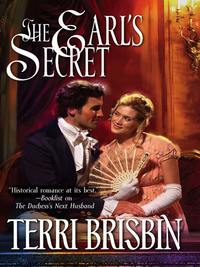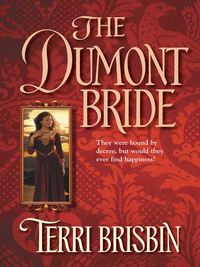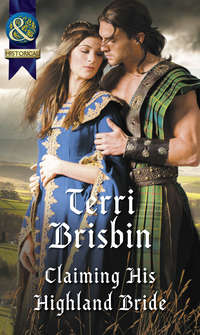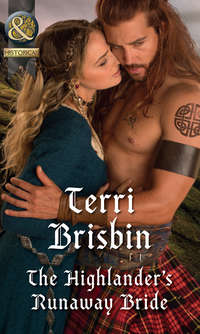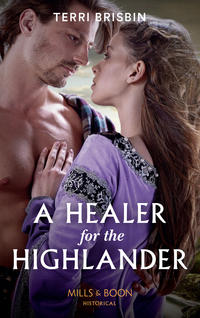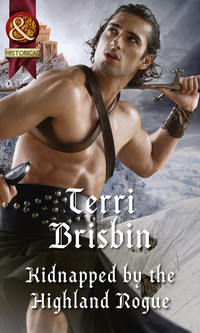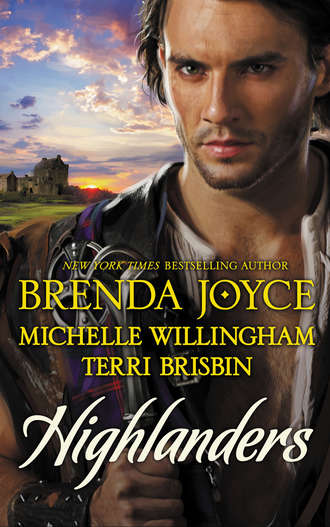
Полная версия
Highlanders: The Warrior and the Rose / The Forbidden Highlander / Rescued by the Highland Warrior

Highlanders
The Warrior and the Rose
Brenda Joyce
Rescued by the Highland Warrior
Michelle Willingham
The Forbidden Highlander
Terri Brisbin

www.millsandboon.co.uk
Get swept away by the romance of the Highlands in three historical romance novellas from Harlequin!
The Warrior and the Rose by Brenda Joyce
Lady Juliana MacDougall prays for her loved ones to survive battle against Robert Bruce...but the battle comes to her when her lands are attacked by a band of Highlanders, including a man wearing the colors of her clan’s worst enemy. Taken hostage by Alasdair Og, Juliana quickly learns he’s as exceptional a lover as he is a ruthless warrior. But how can she ever love Alasdair when he’s her blood enemy?
The Forbidden Highlander by Terri Brisbin
Honor-bound by an arranged betrothal, James Murray never anticipated falling in love with his intended bride’s dearest friend instead. The passion between James and Elizabeth MacLerie is undeniable, but they are torn between love and loyalty to their clans....
Rescued by the Highland Warrior by Michelle Willingham
Celeste de Laurent is determined to never again live in poverty. After sacrificing love for a secure marriage, she now stands to lose everything as a widow. Her only hope is to bear an heir—and what better man to father her child, and save her from a terrible fate, than Dougal MacKinloch, the only man she ever loved?
Contents
The Warrior and the Rose
Rescued by the Highland Warrior
The Forbidden Highlander
The Warrior and the Rose
Brenda Joyce
About the Author
Brenda Joyce is a New York Times and USA TODAY bestselling author of more than forty novels and four novellas, including the bestselling de Warenne Dynasty and Masters of Time® series. Her first novel, Innocent Fire, won a Best Western Romance Award from RT Book Reviews. She has also won a highly coveted Best Historical Romance award for Splendor and two Lifetime Achievement Awards from RT Book Reviews. There are more than 14 million copies of her novels in print, and she has been published in more than a dozen countries.
A native New Yorker, she now lives in California. Brenda divides her time between her twin passions—writing powerful love stories and showing her reining horses. For more information about Brenda and her upcoming novels, please visit Brenda at www.brendajoyce.com, or you can follow her on Twitter at @bjoyceauthor or on Facebook at www.facebook.com/officialbrendajoycefanpage.
Family Tree
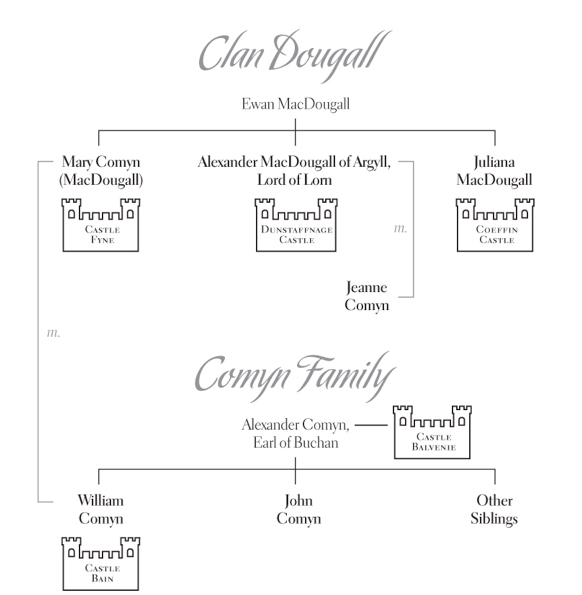
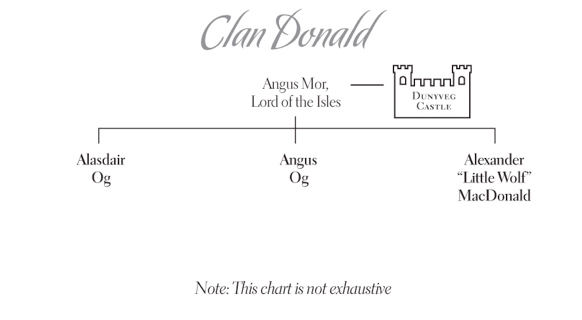
Contents
Chapter One
Chapter Two
Chapter Three
Chapter Four
Chapter Five
Chapter Six
Chapter Seven
Chapter Eight
Dear Reader
CHAPTER ONE
Coeffin Castle, Lismore, Scotland—February, 1287
THERE WAS NO sound in the hall other than that of the two children galloping about on make-believe ponies, waving sticks at one another as if they were swords. Juliana MacDougall adored her little nephews, but just then, she could not smile. She trembled, but not because it was the dead of a cold winter. She could not shake the knot of fear within her.
She glanced across the great stone hall at her sister. Mary was seated at the table, breastfeeding her youngest son, and it was such a beautiful sight that Juliana softened upon seeing it. Mary Comyn was nine years older than she was, yet they were more than sisters; they were the best of friends. Juliana was always thrilled to have her sister in residence with her. And she adored her children, as she had none of her own.
Yet she wished Mary’s current visit was a strictly familial one. It was not.
She was at Coeffin Castle because the land was at war.
Scotland was at war because she did not have a king.
God, would there ever be a time of peace? Juliana’s temples ached. How she hated war—and how she hated awaiting news of those she loved!
Mary glanced up. She was a very beautiful woman with sky-blue eyes and red-blond hair. Her grace was natural, and it drew both men and women to her like bees to honey. She smiled, the expression warm, yet worry filled her eyes. As she did, she shifted the year-old boy aside and adjusted her surcote. “I will have to wean Thomas soon.”
“Yes, you will.” Mary was expecting her fourth child in the early summer. She was delighted, and so was Juliana. She hoped for a little niece.
Mary’s small smile vanished. “I cannot believe Buittle has fallen,” she said tersely. Buittle Castle had belonged to John Balliol, a great estate brought to him by his wife. News had just reached them of its fall.
The boys were suddenly shrieking, and violently swiping their sticks at one another. The aching in Juliana’s temples increased and she marched over to them. “Roger! Donald! Enough!”
Laughing wildly, both little boys, aged four and five, paused, giggling at her. Roger was redheaded and freckled, Donald blond. Then Donald raised his stick at her. “A Comyn!” He cried the battle call, shaking his pretend sword threateningly.
“Donald,” Mary warned.
“Clearly, you will be a great warrior like your father,” Juliana said, deftly removing his stick from his hands. “But you will soon learn you must not raise your sword—or your hand—to a lady, and especially to your aunt.”
Donald was crestfallen. “I’m sorry, Auntie,” he whispered.
“Good, you should be.” She then took Roger’s stick, as well. “If you must play like barbaric Norsemen, go outside.” Laying the sticks on the table, she sat down beside her sister. “Maybe it isn’t as dire as we think,” she said, speaking in a low tone. But it was dire and she knew it—and not just because of the close ties between their families and the Balliol family. The land was at war because the king had bequeathed his throne to his granddaughter, a mere child, and there were those who would not stand for it.
“Bruce took the royal garrisons at Wigtown and Dumfries—and now he has taken Buittle?” Mary said, ashen. She was referring to the Earl of Annandale, the powerful magnate, Robert Bruce. Last April, he had declared that he was the legitimate heir to King Alexander. It was not the first time he had stated as much. He even claimed that, decades ago, King Alexander had declared him his presumptive heir—but no one believed that.
And just a few months ago, he had taken up arms with his supporters, attacking Dumfries, Wigtown, and now Buittle. Clearly he meant to seize the throne of Scotland.
But he was not the only possible successor to King Alexander. John Balliol had also asserted his legitimate right to succeed to the throne. In fact, a dozen claims had been made from nobles across the land and even without it—and why not? No one thought, for even a moment, that a three-year-old would ever take the crown.
Scotland was, it seemed, ripe for the plucking.
And without a regent, with only six guardians to rule the realm, Scotland had so quickly become divided into bitter and ancient rivalries. The Comyns and the MacDougalls were age-old enemies of the Bruce family, even without their loyalty to the Balliol claim. And Bruce’s most ardent supporter was Angus Mor, Lord of Islay and the Isles. Two of his sons, Alexander “Alasdair” Og and Angus Og, followed him. And Clan Donald was every living MacDougall’s worst enemy. The blood feud went back centuries—when one of Juliana’s ancestors, Dougall, had been murdered by his own nephew, Donald.
Mary’s husband William Comyn had gone to war with their brother, Alexander MacDougall, along with a great many other Comyn and MacDougall kin, to keep Robert Bruce from the throne—in the hopes of one day crowning John Balliol, instead.
“Maybe the news isn’t true,” Juliana said, aware that she was grasping at straws. “Or maybe, as we speak, our forces are taking Buittle Castle back for John Balliol.”
Mary stared at her grimly. “I don’t really care who has Buittle, and I am not being disloyal! I only care to learn that William hasn’t been hurt—or worse.”
“I know,” Juliana said softly.
“I am only twenty-seven years old,” Mary whispered. “And I have already lost three husbands...I love William so, Juliana. I cannot bear it if I lose him, too.”
Juliana squeezed her hand. Her sister had been briefly married to the king of the Isle of Mann, to the Earl of Strathearn, and to another Scottish baron. War and illness had taken each of her husbands in turn. But six years ago she had fallen in love with the Earl of Buchan’s third son, William Comyn. The Comyn family was the most powerful dynasty in the north of Scotland. Their brother had been pleased to allow the match.
Juliana knew that Mary was as loyal as she was, that she cared deeply about the fortunes of their family, and that of course, she wished for Bruce to be defeated. Should Bruce ever triumph, the MacDougall and Comyn families would suffer—the loss of lands, titles and lives. But just then, her fear for her husband overrode her every other sensibility, and Juliana did not blame her.
Secretly, she admired her sister so much, not for surviving her three previous husbands, not for making such a fine fourth marriage—but for finding love. Juliana did not know of another married couple that genuinely loved one another as Mary and William did. After all, marriages were about politics and power.
“Let’s go to the cathedral and pray,” Mary said, standing. She gestured at a maid, who came forward to take the now sleeping Thomas from her. “Thank you, Elasaid. Praying will calm us both,” she added.
An hour later, the boys were all settled in their chamber, and the two women were wrapped in furs. Ian, captain of Juliana’s guard, was outside, waiting for her, as she had instructed him earlier. Four other Highlanders were also attending them.
Juliana was accustomed to having her own guard. Lismore was a portion of her dowry. It was a very fertile island, with abundant fisheries and grazing, but its true importance were Coeffin Castle, with its oversight of the Firth of Lorn, St Moluag’s Cathedral and Achanduin Castle, which was the seat of the bishop of Argyll.
Lismore was a safe haven, and it had never been attacked seriously in her lifetime. Her brother had his greatest castles just to the east and to the southwest. As a result, it wasn’t easy for another clan to control the route into Argyll from the firth. However, the MacDonalds, the MacSweens and even the MacRuaris had been fighting them over that route for as long as she could recall.
Last year, she had been about to marry one of Alan MacRuari’s sons, Lachlan. Clan Ruari could be convinced to ally itself with them, and her brother had hoped to solidify that inconstant bond. But Lachlan had died in a battle at sea last summer. No other union had yet to be put forth, and because Juliana was now eighteen, she was becoming anxious. Most women were married by the age of fifteen. She would soon be considered well past her prime, if her brother did not seriously seek a husband for her.
As they exited the castle, Ian was standing by to help her mount, and Juliana smiled at him. When both women were astride their small mares, the cavalcade set off. In spite of the cold, it was a beautiful winter day, the sun bright, the sky blue and cloudless. Snow was melting on the hilltops and on the path they traversed. Squirrels had come out to forage. Juliana glanced at Mary, saw that she was deep in thought, and decided to remain quiet.
The cathedral finally appeared ahead, surrounded by thick pine trees. It was a small square building, a century old, no larger than a village church, flanked by two gray stone towers. A large stone cross, the height of two men, rose up from a mound in front of the building. The St. Moluag monastery was below the cathedral, behind an orchard. It could not be seen from the courtyard.
Juliana slid from her mount, as did Mary. Hand in hand, they left their small group of soldiers outside and pushed open the heavy wood door, entering the vestibule. From there, they could see down the nave—two village women were standing in prayer, not far from the podium, at its far end. Bishop Alan stood before the sacristy, his back to them.
It was stunningly quiet within. Juliana glanced up at the high ceiling above. She had always found majesty and peace in St. Moluag’s Cathedral, from the first time she had ever entered its hall, as a little girl with her mother. God was there, to hear their prayers, to keep William and Alexander safe. She had no doubt.
Alan Frasier, the Bishop of Argyll, had seen them. He was a man of medium height and girth, with brown hair and kind eyes. He smiled, leaving the apse, as they approached him. “Lady Juliana! Lady Mary! I am so pleased you are here.”
“I cannot wait for Mass to pray,” Mary said, managing a smile.
“One should never wait to pray,” he returned. He glanced at Juliana. “Has there been news? You seem distraught.”
Juliana had known the good bishop for most of her life. He knew her well. “Have you not yet heard that Buittle is now lost, too?” Juliana asked.
Bishop Alan turned white. “How is that possible?” he cried. “Bruce has actually defeated your brother and the great Comyn family?”
Juliana started. “It is one battle, Your Grace, and I imagine the war has only just begun. My brother is usually triumphant—he will surely triumph in time.”
“We must hope so,” Alan said.
As Mary began lighting tapers and kneeling to pray, Juliana touched his arm. “I am distraught,” she said softly, “but so are you.”
He hesitated. “I just never expected Bruce to take Dumfries or Wigtown, and defeat the English armies there. And now, Balliol has lost Buittle. This does not bode well, Lady Juliana, not at all. Well, at least we are far from the fighting.”
Juliana wished he had been optimistic—she did not need to worry even more, now. And she thought his last remark odd, very much so, but before she could reflect upon it, war cries rent the day.
She went still and Mary cried out.
They had heard the war cries of Highland warriors too many times in their lives. The sound was shrill and barbaric—and terrifying.Shocked, Juliana turned, as outside the cathedral swords rang violently as soldiers fought one another. Horses neighed in panic and men screamed in murderous rage. In that instant, time seemed to stop as she realized the cathedral—or her men—were under attack.
Juliana grabbed her sister, who had leapt up, thinking to propel her towards the back of the cathedral, where a side door would let them exit the south transept. But just then, the front door burst open and Juliana saw Ian and another of her soldiers rushing inside. “Lady Juliana! Lady Mary!” Ian shouted, his eyes fierce and wide, his sword in hand, dripping with blood.
Before she could move, either towards him or away, she saw a dozen Highland warriors streaming into the cathedral—a jumbled image of tall, long-haired men, clad in furs, bare-legged, wielding swords and daggers.
Juliana and Mary screamed. Ian whirled to confront the invaders, but too late. His sword was knocked from his hand, and then he was run through the chest.
Choking on a sob of anguish, Juliana did not wait to see him collapse. She seized Mary, and they raced towards the right side of the cathedral, intent on fleeing out the transept’s side door.
As they ran toward it, it burst open.
Juliana stumbled, halting, as a Highlander erupted through the entranceway. All she saw was shaggy black hair, blue eyes, and dark blue tartan striped with red. The colors of their worst enemy.
She and Mary were frozen as the Highlander faced them, sword in hand. A horde of his men were rushing inside now, past him. Juliana’s shock became horror as pale blue eyes set in a hard face met hers.
MacDonalds were attacking the cathedral, her men, her land!
Suddenly the towering Highlander was racing past her. Juliana turned and cried out as he seized Bishop Alan, pressing a dagger cruelly against his throat.
Juliana wanted to scream at him to stop. But no words came out—the MacDonald was going to murder her bishop, she was certain, just as his men had massacred her soldiers. She saw the ruthless, murderous intent in his cold blue eyes.
“Spare me, Alasdair! I beg you!” Bishop Alan sobbed.
“Don’t,” Juliana heard herself gasp, but as she spoke, she was seized brutally from behind by her hair. She was jerked backwards, into a man’s arms, while beside her Mary was also grabbed. Her captor pressed a knife to her throat.
Juliana went still. The Highlander—Alasdair—still holding Alan, shifted to look at her.
“Don’t hurt my sister!” Juliana cried, her gaze locked with Alasdair’s. “She is with child!”
“We’re not here for women,” he said coldly, and he pushed Alan hard, so he fell face first to the floor. He then laid one spurred and booted foot on his back. Revulsion briefly covered his face, and then he looked at Juliana again. “Release both women.”
His men obeyed at once. Juliana rushed to Mary, and they instantly clasped hands. But she could not take her eyes off of Alasdair, who continued to press Alan into the floor with his boot.
She began to shake. Her men had been murdered, and she knew that this Highlander meant to murder her bishop, too.
Her fear intensified. Was he Alasdair Og, the eldest son of Angus Mor, Lord of the Isles?
His father was a ruthless warrior who considered himself a king. And in effect, he was just that. Angus Mor commanded not just Islay and Kintyre, but other, smaller islands, lands in Argyll and Galloway, and a great deal of the high seas. No other regent dared to assert authority there. The kings of Scotland, England and Norway had tried and failed.
Angus Mor was an older man now, but she had heard it said that his son was as ruthless, as fearless, as ambitious, and one day, perhaps soon, he would be Lord of the Isles.
He was not just tall, a head taller than most, but he was hewn like a statue of stone. His broad shoulders, chest and arms were those of a Highlander who had spent his entire life hefting axes and swords. And his hair needed to be cut. It was well past his shoulders. Now, she saw a blue feather woven into a braid, the color almost as pale as his eyes.
Juliana jerked, for she realized she was staring—and she saw that Alasdair was staring as intently back at her.
She suddenly flushed. He did not appear as ruthless just then, for his gaze was narrowed, and he was staring at her red hair, which had come free of its braid and now spilled over her chest.
“What do you want?” she managed to ask.
His mouth curled and he removed his foot from Alan’s back. Alan scrambled across the floor, crawling frantically away from him but Alasdair took two steps towards Alan, reached down, seized his shoulder and dragged him to his feet. “Can ye not crawl away faster?” he mocked.
“I have done nothing ill, my lord!” Alan gasped, his cheeks stained with tears.
Juliana could not stand such abuse. “Stop!”
Mary seized her hand and gave her an incredulous and warning look.
Alasdair faced Juliana, and suddenly it was so still and silent in the cathedral that Juliana could hear her own breathing, which was labored, and her sister’s, which was as harsh. “I beg yer pardon?” One black brow slashed upwards.
She now noticed just how even his features were, and that he had a crescent scar under his right eye. She wet her lips. She could hardly order Alasdair MacDonald around. “Please, reconsider what you intend to do.”
He smiled, amused, and turned to his foremost soldier, a Highlander with long, curly red hair. “Take him outside. Shackle him. I’ll be out to dispose of him in a moment.”
“I didn’t betray you!” Alan screamed.
“Liar.” Alasdair struck him with the back of his hand, across the face. The slap was made effortlessly but was so powerful that bone and cartilage cracked, blood streamed, and Alan was propelled across the nave. Another soldier caught him before he fell and forced him outside.
She could not allow this! Juliana rushed forward. “Stop! What quarrel do you have with the bishop? Why do you torment him so?”
His eyes wide, he looked at her anew. This time, speculation was clear in his gaze. “The bishop has betrayed me, lady. If ye must ken.”
“Could there be a mistake? I have known the good bishop for ten years, if not more. He is a good man.”
“Ah, why am I not surprised that ye, lady, would think so?” He slowly smiled, and she shivered because she did not care for the way he was regarding her—he was looking very carefully at her every feature and at her figure. “Ye must be the lady of Lismore.”
He had been bound to realize her identity, sooner or later. It was common knowledge that Lismore was her dowry. She was clearly a noblewoman, and her red hair was always the cause of interest and admiration—it often gave her away. “I am Lady Juliana MacDougall.”
“The bards have not done ye justice, lady,” he said, very softly. “They have sung of yer beauty, but not well enough. Their songs cannot match it.”
Juliana trembled. Ian lay dead not far from the vestibule, as did another of her knights. And he dared to flatter her now? “You have attacked my lands, you have killed my men!”
“And I am sorry—but the bishop must pay for his treachery.”
Juliana did not want to argue with him. “Bishop Alan does not have a treacherous nature.” She did not add what she wished to state—that he must be wrong.
“I am not surprised ye’d be loyal—yer a MacDougall.”
She tensed, breathing hard. “Are you Alasdair Og?” she finally asked.
He smiled. “The very one.”
So she was confronting her worst enemy. “I thought you were in the south—fighting with Robert Bruce.”
“I returned—for revenge.”
“What do you think he has done?” she cried.
Mary now hurried up to her. “Juliana, leave it be. You cannot save him.”
Her sister was so pale, and her hand was on the protrusion of her pregnant belly. She knew what Mary truly meant to say—leave war to the men. Their brother would hunt down Alasdair for what he had done today. Of that, there was no doubt.
But she had to do something, to try to save Bishop Alan’s life. Juliana took Mary’s arm and guided her to the steps before the altar, pushing her to sit. “I do not want you to jeopardize the babe,” she said low.
“You are placing yourself in jeopardy. You will never persuade him to leave the bishop in peace,” Mary whispered back, but her gaze was on Alasdair.
He hadn’t moved, and from the end of the nave, he stared at them.
Juliana turned back to her sister. “Too many have already died! And he has attacked my land!”
Before Mary could rebut, Juliana straightened and walked back to Alasdair. He shook his head. “Ye should heed yer sister—she is wise.”
“What did he do?”
“I will not debate ye, Lady Juliana. But I am pleased to tell ye the truth. The good bishop came to me, claiming to support Bruce as king. But I am no fool. I tested him and discovered he was naught but a spy sent by your brother. He spied on me, he spied on my brother and he spied on my father. I cannot let such treachery go.”


